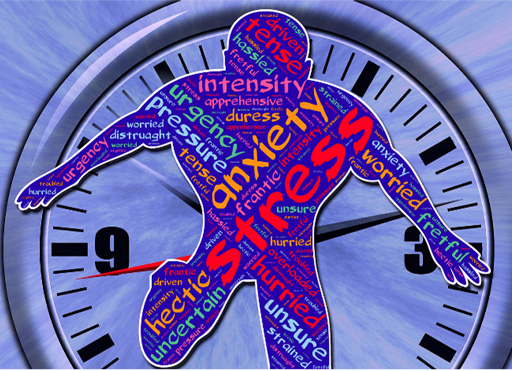1.2 Evaluating stressors
You’ll now start to think about how you can identify signs of stress in your own life.
Activity 1 Identifying signs of stress
Thinking about yourself, identify which of the following may indicate you are feeling over-stressed and/or not coping:
- feeling anxious
- worrying excessively about things
- over-thinking or rumination
- avoidant behaviour – e.g. not engaging or volunteering to participate
- tiredness or listlessness
- digestive problems
- feeling detached
- difficulty breathing
- blurred eyesight and/or sore eyes
- poor concentration
- sleeping difficulties
- muscle aches and headaches
- loss of motivation
- irritation and frustration
- ongoing irregular, or disordered, eating
- low mood
- deterioration in existing health conditions.
Discussion
All of these symptoms can be indicators or signs that you are stressed and/or not currently coping. Do remember, though, that stress is a fluid state, and strategies to reduce stress (see further on in this week’s content) can be really effective; this does not need to be a forever situation.

